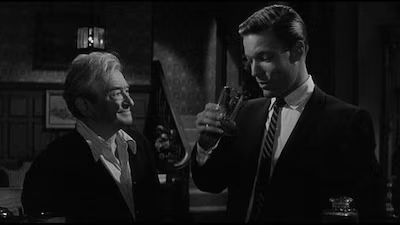
 |
| Photo © 1963 MGM / Perlberg-Seaton Productions |
| Academy Award Nominations: | |
| Best Supporting Actor: Nick Adams | |
| Best Art Direction–Set Decoration: George W. Davis, Paul Groesse, Henry Grace, Hugh Hunt | |
| Golden Globe Nominations: | |
| Most Promising Newcomer (Female): Joey Heatherton | |
| Permalink | Home | 1963 | ABC |